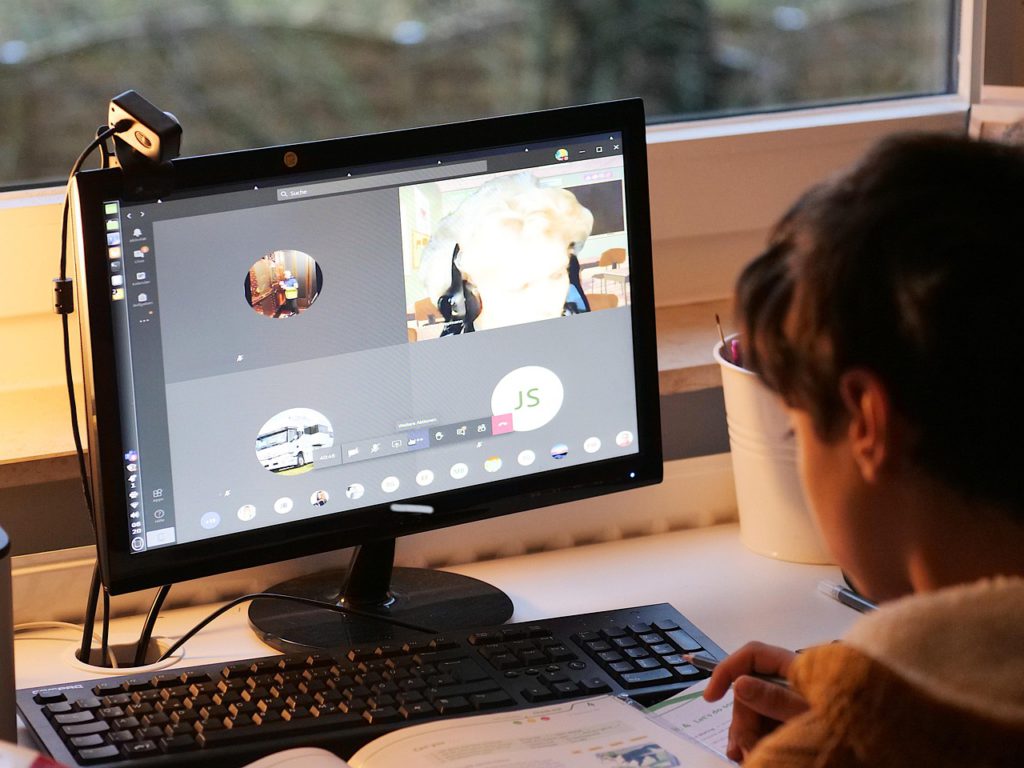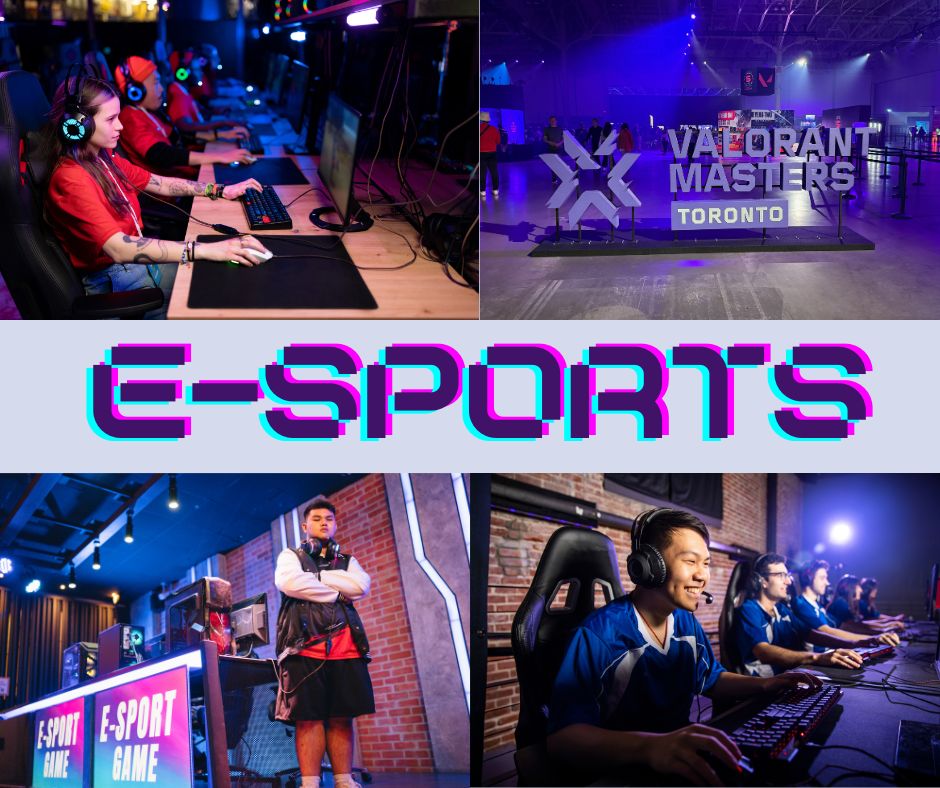
Why Online Learning Works
Posted by
The world of online learning isn’t a passing trend; it’s a powerful pathway to knowledge, offering a treasure trove of benefits that can reshape your educational journey. When educators design online courses with purpose, these virtual classrooms rival their in-person counterparts. They can spark just as much student engagement, lead to similar robust outcomes, and help participants master new skills with equal depth and effectiveness.
The real difference lies in the course’s design and its ability to engage learners. We’re not just talking about posting a recorded lecture and syllabus online, but about an integrated course that encourages lively discussions and strong connections between students and instructors, as well as among the students themselves.
Whether you take a coding course, an advanced math class, or virtually any topic in between, online programs are a great alternative to an in-person program.
Benefits of online learning
Your schedule: The value of flexibility
The “magic” of online learning is that while traditional classes require you to attend at specific times and places, virtual classrooms offer a certain amount of autonomy, especially if you enroll in a program with an asynchronous component (or that’s completely self-paced). If you’re juggling a part-time job, extracurriculars, sports, or other responsibilities during the school year, online courses may fit your schedule better.
Smart savings
Opting to take an online course or virtual camp can help save your (or your parents’) wallet. You don’t have to worry about commuting costs, and digital resources replace printed books and manuals, which can get pretty pricey. (The average cost of textbooks per semester is $600.) Plus, many colleges and universities offer online learning opportunities for high school students, giving you a leg up on earning credits before you even earn your diploma.
A kaleidoscope of choices
Online programs offer a veritable buffet of choices, where you can pick exactly what sparks your interest. You’re not confined by geography or fixed timelines. You can pursue your hobbies, get a head start on college coursework, or earn a certification (or even a degree).
Stepping stones to success
Like their traditional counterparts, virtual learning experiences can become springboards for your career, whether you plan to attend college or enter the workforce right after graduation. Many colleges and universities also offer online courses and degree options.
More collaboration
Many online programs include message boards or grouping tools to encourage conversations, collaboration, and networking. You can offer feedback on prompts and assignments, and help each other troubleshoot.
Long-term access to course materials and other resources
Online programs, especially those with asynchronous formats, use the record feature, so you can go back to review lessons and discussions as often as necessary. Plus, many of these programs allow you to access course materials even after the course ends.
Skills development
Online learning programs are surprisingly good at developing students’ hard and soft skills. People and life skills include self-discipline and motivation, time management and organization, communication (especially written), self-advocacy, collaboration, and teamwork. Hard skills students hone may include computer literacy, data analysis, cybersecurity basics, media literacy, specialized software/platforms, and writing and editing.
Personalized education
Online learning can be a game-changer for students who become distracted in busy classrooms, have social anxiety disorders, or are just a bit shy. These students can participate from their own spaces and go at their own pace. Some students may be faster or slower readers. They can choose how to manage their time and assignments with more flexibility than a traditional class might allow.
More level playing field
Online learning can create a more level playing field because factors that can create discrimination, like age, appearance, gender, and race, become less visible. It becomes easier to keep the primary focus on the program’s content, student interactions, and discussions.
College and career readiness
Online programs can offer personalized learning paths and advanced courses you might not find in a traditional school. Look for programs with strong career and college readiness indicators (CCRI); these programs prepare students for life after high school by boosting their tech savvy, critical thinking, research skills, and independence.
More accommodating for people with disabilities
In addition to the flexibility afforded by online learning, online platforms are increasingly designed with accessibility in mind and are compatible with various assistive technologies, including screen readers, text-to-speech software, voice recognition software, alternative input devices, and word prediction software. These programs often facilitate more one-on-one interaction with instructors, and discriminating factors like physical appearance, mobility aids, or certain communication styles are less apparent.
The challenges of online learning
We’d be remiss if we didn’t talk about some of the potential drawbacks of online learning.
Accessibility to technology
As we saw during the 2020 pandemic, accessibility played a crucial role in ensuring that all students could participate equally in online learning. Any online program must ensure students have equitable access to technology and the internet, as economic or logistical barriers disproportionately affect students in rural and lower-income areas. Without providing this access, institutions risk excluding eligible students and losing them as participants.
Computer literacy
Both students and instructors need fundamental computer literacy, including proficiency in navigating the internet and using communication tools (a less significant issue for the younger, digitally literate generations). Without these essential skills, either side’s participation can hinder the entire program’s effectiveness.
Technology limitations
Even the most advanced technology can fail, and it’s a matter of if — not when — these issues crop up in online programs. When breakdowns occur, such as a server crashing, internet connectivity becoming unstable, or a computer issue, technology can become a (hopefully temporary) barrier.
Student challenges
Online learning, especially programs with asynchronous formats, may be hard for some students to manage. To be successful, students need to be self-disciplined and able to manage their time effectively. Younger or more dependent students who require more structured guidance and support could struggle.
Insufficiently trained facilitators/instructors
Just because someone’s a great in-person teacher doesn’t mean they’ll ace online instruction. If instructors aren’t adequately trained for the virtual classroom and fail to create a supportive and communicative online space, the program may falter, and students may feel lost.
The administrative approach
Administrators or faculty who resist change, new technology, or question the quality of online learning can negatively impact an online program’s success. If an educational institution focuses solely on earning money and not providing a quality program, instructor training and reasonable class sizes may become low priority.
The level of synergy
Online learning shines when students actively chat and learn from one another. But once class sizes hit 20, that collaborative energy fades, turning into more of an independent study where there’s less back-and-forth, and the online platform isn’t used to its full potential.
Not all topics translate to online teaching/learning
Realistically speaking, some subjects aren’t a good fit for online learning, like public speaking, sports, or certain art mediums, which need hands-on practice and physical interaction. While hybrid courses may help, these courses (and subjects) highlight that online-only isn’t always the best way to learn everything, even if the tech makes it seem possible.
A poorly adapted curriculum
For an online program to click, its curriculum must be custom-built for the digital space, not just copied from in-person classes. Instructors adapting a traditional format for online courses should focus on interactive, discussion-based learning more than traditional lectures, for example.

Characteristics of mediocre vs exceptional online learning programs
Exceptional online learning programs do more than present the class materials virtually. These programs offer a dynamic, supportive, and engaging experience that helps students thrive academically and personally. Here’s what elevates great online classes above the mediocre ones:
Content delivery
- Mediocre online programs: Contain static PDFs, long lectures, and basic quizzes.
- Exceptional online programs: Use rich multimedia (videos, simulations, interactive labs), engaging activities (discussions, collaborative projects, real-world applications), gamification, and opportunities to create, not just consume.
Instructor presence and support
- Mediocre online programs: Teachers are largely absent, slow to respond, provide generic feedback, aren’t available for live sessions/Q&As.
- Exceptional online programs: Instructors are highly qualified, active, and present. They foster a supportive community, provide timely, personalized, and constructive feedback, and are accessible for questions and individual support (virtual office hours, quick responses). They communicate well in writing and adapt their teaching to the online format.
Community and connection
- Mediocre online programs: Students may feel isolated and have little interaction with their peers because few opportunities are provided.
- Exceptional online programs: Programs actively build community through regular live sessions, structured discussion forums, group projects, virtual clubs, and even social interaction. They create a “level playing field” that allows students to feel comfortable participating.
Technology & UX
- Mediocre online programs: Use clunky, unreliable, legacy platforms that may have frequent technical glitches and confusing navigation.
- Exceptional online programs: Leverage user-friendly and reliable learning management systems (LMS), seamlessly integrate various tools, offer accessible technical support (ideally 24/7), and prioritize accessible design for all learners.
Tailored & flexible learning
- Mediocre online programs: Typically use a one-size-fits-all approach, with rigid deadlines and limited options.
- Exceptional online programs: Offer personalized learning pathways to accommodate diverse learning styles and needs, flexible pacing options (while still maintaining rigor), and a wide variety of courses. (Depending on the organization and program, it could include electives and advanced placement or dual enrollment opportunities).
Focus on college & career readiness
- Mediocre online programs: Offer courses to meet requirements to earn a diploma.
- Exceptional online programs: Integrate strong career and college readiness indicators (CCRIs) by developing critical thinking, research, problem solving, digital literacy, and self-management skills. These programs actively prepare students for their next steps, whether it’s the next grade in school, higher education, or the workforce.
Expectations & standards
- Mediocre online programs: Characterized by vague instructions, unclear grading, and inconsistent policies.
- Exceptional online programs: Provide transparent learning objectives, clear assignment guidelines and deadlines, and consistent communication. Online schools and pre-college programs champion academic rigor comparable to or exceeding traditional schools.
Accreditation & reputation
- Mediocre online programs: These programs lack accreditation or have a less-than-stellar reputation or reviews.
- Exceptional online programs: These programs hold regional or national accreditation, ensuring the quality of the education and recognition of a diploma, certificate, or college credits (depending on the program) by colleges and employers.
Check out these recommended online learning programs
- Boston Leadership Institute: STEM Summer Programs
The Boston Leadership Institute offers many different options, including STEM Summer Programs. Students can choose from one- and three-week online programs to explore biology, biomedical engineering, chemistry, robotics, STEM, entrepreneurship, and other classes. Students who want a head start on high school math, science, or AP courses can take a one-week edge program online. - Camp Integem: AI Robotics, Holographic AR Coding, AI Space Drones, 3D Game Design & Animation
At Camp Integem, students live technology through hands-on, cutting-edge projects in AI, robotics, game design, and more, turning their ideas into real-world creations. Students from over 20 countries have enrolled in this organization’s online programs and earned NVIDIA AI Certificates and the U.S. President’s Volunteer Service Award. Other options include online private lessons (ages 5-18) and an online tech leadership program (ages 11-18). - Case Western Reserve University: Social Entrepreneurship - The Business of Helping Others
Teen entrepreneurs should check out Case Western Reserve University’s two- or four-week online course that includes 30 hours of video lessons, mentoring, discussions, and more. Learn how social entrepreneurs start, build value propositions, find customers, identify problems, design solutions, and build teams. This flexible program culminates in a final project where you can show what you’ve learned. - Columbia University: Summer Programs for High School Students
High school students can earn an official Columbia University Statement of Attendence through one of Columbia University’s one- and two-week online programs that include Columbia Writing Academy: Summer, CSPA Summer Journalism Workshop, and Online Summer (which includes courses in art and architecture, business, economics and entrepreneurship, core skills, creative writing, humanities, literature and philosophy, journalism, law and conflict resolution, marketing and communications, mathematics, neuroscience, and more). - Johns Hopkins Engineering Innovation Pre-College Programs
Johns Hopkins Engineering Innovation Pre-College Programs empower talented high school students to explore different engineering fields, experience college-level courses, and earn college credit. The online options include Explore Engineering Innovation, Biomedical Engineering Innovation, and Intro to Python. Some classes are asynchronous while others are taught live. - LaunchX Summer Programs
Budding high school entrepreneurs can take LaunchX’s two-week Online BootCamp to learn about the fundamentals of startups, including securing financing and developing go-to-market strategies. Another option? The organization’s Online Innovation Program, where students from around the world collaborate to troubleshoot business problems and develop and deploy solutions. - Northwestern Center for Talent Development Summer Programs
Northwestern’s CTD summer programs have something for students in all grades. The online programs include four-, six-, nine- and eleven-week enrichment and accelerated, credit-bearing options, like honors and AP courses. Sessions include live, synchronous and flexible, asynchronous options with plenty of opportunities for hands-on, in-depth exploration. - Rice University Precollege Program
Choose a pre-college summer program or school-year enrichment program to expand student horizons in aerospace, business, career exploration, economics, engineering, entrepreneurship, finance, law, pre-med, psychology, or a STEM field. Online courses include 20 to 30 hours of instruction and activities, including multimedia, simulations, and curated assignments, plus mentoring from an industry expert and a final, culminating capstone project. - Specialty Summer Programs at The Peabody Preparatory
Johns Hopkins University’s The Peabody Preparatory is the community’s premier school for the performing arts. It offers Baltimore BeatLab an online (or in-person) summer program for students interested in music production, beatmaking, and digital audio creation. - UMass Amherst Summer Pre-College Programs
UMass Amherst designed its summer pre-college programs to give students a taste of college life. Classes meet synchronously 3-5 times weekly and include assignments and projects. The two-week online programs include How Business Works, Primate Evolution, Ecology and Conservation, Programming for Aspiring Scientists: Python with Applications to Physics, and Sports Management & Leadership Academy. - William & Mary Pre-College STEM Programs
William & Mary offers several two-week pre-college programs online each summer. Students can take Medicine: Disease, Diagnostics and Interventions or Cognitive Psychology: How the Brain Works. Each course includes 20-30 hours of instruction, where participants learn asynchronously, work with a mentor, and create and present a project demonstrating what they’ve learned. Students also earn a Certificate of Completion from W&M.
Final thoughts and takeaways about online learning
According to Nhon Ma, CEO and co-founder of Numerade, a virtual e-learning platform and the world’s leading STEM education company, “Online learning works because it is flexible, time and cost efficient, and tailored to a student’s individual needs and learning style. One of the biggest boons to online learning is its ability to participate asynchronously at a time most conducive to a student’s schedule and biological rhythm. Students also have the agency to pause and focus on a particular area they may need extra help with, and there are plenty of online resources to help support that need.”
When reviewing possible online learning programs, read reviews, look for certifications and accreditations, its level of flexibility and pacing, course offerings, instructor qualifications, and how well it aligns with a student’s personal goals and interests.
Blog Categories
- Career Advice
- College Admissions
- Colleges & Universities
- Financial Aid and Scholarships
- For Counselors
- For Parents
- For Students
- Gap Years
- Mental Health and Wellness
- Online Learning
- Performing and Visual Arts
- STEM Majors and More
- Summer Programs
- Teen Volunteering
- Trade & Vocational Schools
- Tutoring & Test Prep

Organization with listings on TeenLife? Login here
Register for Free
We’re here to help you find your best-fit teen-centered academic and enrichment opportunities.
Forgot Password
"*" indicates required fields









